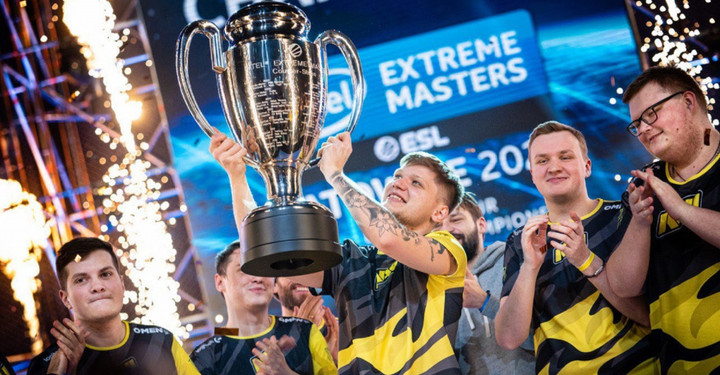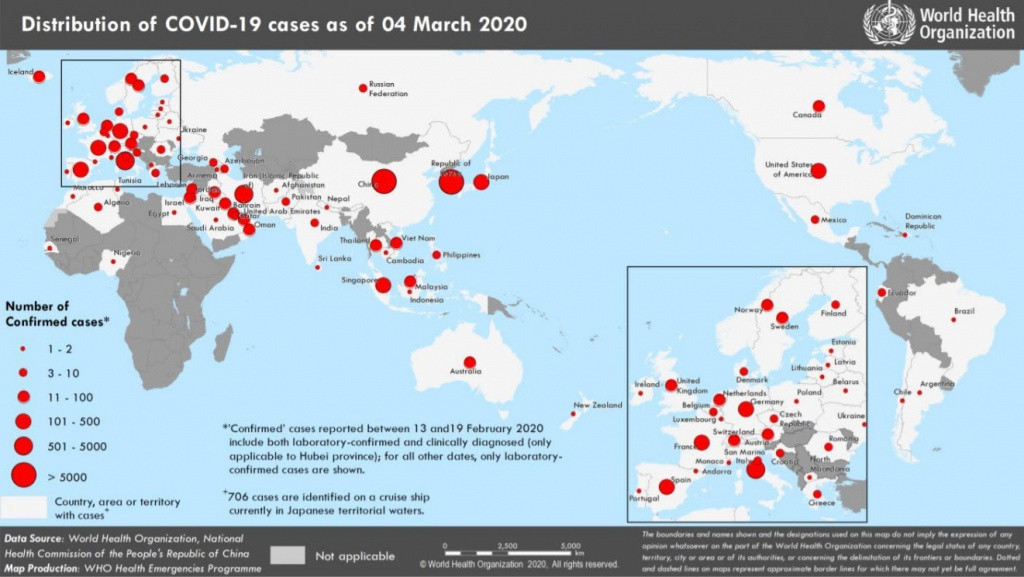The spread of the Coronavirus disease (COVID-19) has dominated global headlines in recent months, leaving a world on edge and medical communities scrambling to respond. As it continues to spread, the top priority on everyone's mind is safety.
It’s always important to remember not to spread fear and misinformation during a time like this. With that in mind, let's take a look at the global situation right now, then how the Coronavirus has impacted esports.
Coronavirus global situation
The novel Coronavirus, named the severe acute respiratory syndrome Coronavirus 2 (SARS-CoV-2), can cause an acute respiratory disease called COVID-19.
At the time of writing, the latest statistics from the World Health Organization (4 March 2020 report) put the confirmed cases globally at 93,090 with a total of 3198 deaths. COVID-19 has spread to 76 countries with a total of 12,668 confirmed cases and 214 deaths outside of China.
The latest WHO report featuring distribution of confirmed coronavirus cases (Picture: WHO.int)
The World Health Organization has already declared an emergency of international concern. There are travel restrictions, quarantines, and more to stop the spread of the virus.
Over 48,000 people have recovered from the Coronavirus so far and diagnostic test kits are being deployed as fast as possible. Remain mindful of scams and misinformation and keep up to date with the latest from the WHO by heading here. Keep up to date with the situation reports from WHO and don't believe everything you read online.
COVID-19's impact on esports
It’s dangerous to assume how COVID-19 will impact esports going forward. The worst thing we can do is spread rumours and incite fear, or speculate in any way which tournaments might get cancelled, or changed to an online format. However, several esports tournaments have already been impacted by coronavirus disease.
12 hours before the doors were set to open for IEM Katowice 2020, the license for the event was revoked by the mayor of the Polish city. This meant the tournament had to be played without an audience.
However, it also meant the tournament had just over 1 million viewers at its peak. IEM Katowice set a new record for IEM events and became the most popular non-Major event in the history of CS:GO.
🏆 CHAMPIONS 🏆@natusvincere#IEMpic.twitter.com/5RNTU2Sd5I
— ESL Counter-Strike (@ESLCS) March 1, 2020
Late in February, Capcom pulled three events from the Capcom World Tour due to coronavirus disease concerns, and early this month, the Tokyo Tekken Masters postponed by Bandai Namco over similar fears.
Blizzard also cancelled plans to host the Overwatch League in South Korea for Weeks 5, 6, and 7 due to the spread of COVID-19 in the country.
While the impact of the coronavirus disease on esports is clear, with events being cancelled or postponed, we shouldn't speculate on which events could be next on the chopping block.
Esports has a distinct advantage
Compared to traditional sports, esports has a distinct, relatively obvious advantage. The simple fact is players can participate in esports tournaments online. They don't need to be played in a stadium and players don't need to be in close proximity to one another to compete.
While not ideal, tournaments featuring teams from the same country or region can still be played online. Yes, latency is an issue and international tournaments with teams from various countries and continents might not work.
This is due to a latency advantage for the teams closest to the online server. However, esports won't come to a grinding halt due to the coronavirus, no matter how much it spreads across the globe.
A prime example of esports taking the online route to avoid coronavirus is the Chinese League of Legends Pro League.
The league was suspended due to COVID-19 concerns in February. On 9 March, the league will resume but will be played online, with several steps being taken to ensure player safety. It remains to be seen which other leagues will follow the LPL's example.
Closing thoughts
At the risk of repeating ourselves, the coronavirus disease (COVID-19) outbreak is a global concern and shouldn't be taken lightly. The best thing esports fans and players can do right now is stay safe.
The top priority for tournament organizers should always be the safety of players, fans, and broadcast talent. COVID-19 has already affected esports and until it is completely under control, this will likely continue. However, esports does have a distinct advantage over traditional sports, and it's something to be thankful for.

 No ads, our video library,
No ads, our video library,


